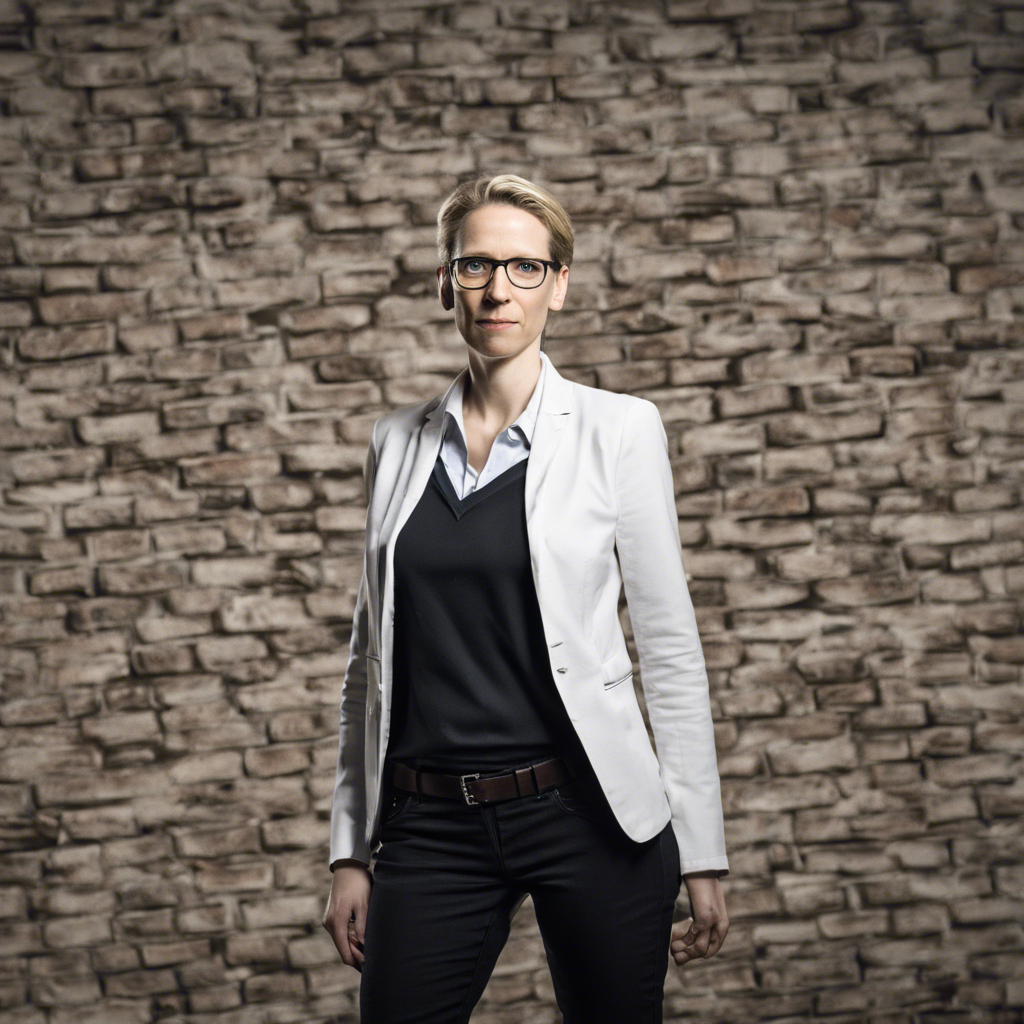Alice Weidel: The Rising Star of Germany’s Far-Right Party

Alice Weidel, co-head of the Alternative for Germany (AfD), is making waves in German politics as the party gains popularity and she sets her sights on the chancellorship.
Once a year, Alice Weidel and her wife sit down to reflect on the challenges they have faced as prominent figures in Germany’s far-right party, the Alternative for Germany (AfD). Weidel, the co-head of the AfD, has endured public exposure, anonymous threats, and widespread hatred. However, as the party continues to gain support and Weidel emerges as a potential candidate for chancellor, she may soon see her efforts pay off. With the AfD currently ranking second among the six main parties in Germany, Weidel’s ambitions could make her the first far-right politician to lead the country since the end of the Nazi era.
The AfD’s Radical Vision for Germany
The AfD’s vision for Germany includes tearing up the country’s relationship with Europe, ending the use of the common currency, and implementing stricter border controls. The party’s anti-immigrant stance was forged out of opposition to former Chancellor Angela Merkel’s welcoming stance toward refugees. Weidel, along with other prominent right-wing politicians in Europe, such as Italy’s Giorgia Meloni, the Netherlands’ Geert Wilders, and France’s Marine Le Pen, has tapped into grievances about economic security and successfully mainstreamed identitarian politics. However, the AfD’s plans are limited by the fact that other parties have ruled out cooperation, leaving Weidel undeterred as she continues to gain support.
Weidel’s Rise to Prominence
Weidel’s path to prominence within the AfD has been paved by the party’s more extremist faction, which toppled many of its earlier leaders. Since the 2021 election, Weidel has doubled her party’s support nationwide. She believes that the current government’s actions are already driving voters towards the AfD, making her job easier. Weidel has positioned herself as a vituperative critic of Chancellor Olaf Scholz’s government, using her platform in the German parliament to voice her opposition. With the governing coalition facing a budget crisis and speculation growing over its stability, Weidel may find herself fighting for the top job sooner than expected.
The AfD’s Government Program
In September, Weidel and the AfD’s co-leader, Tino Chrupalla, presented a 10-point government program in Berlin, signaling a shift from being seen as a party of protest to one that is ready to govern. Their program includes closing Germany’s borders, deporting illegal migrants, and abandoning the country’s 2050 net-zero emissions target. Weidel’s stance on renewable energy, particularly wind energy, has drawn criticism. Despite evidence from Bloomberg New Energy Finance that Germany is attracting record bids from offshore wind developers, Weidel argues that the economics of wind energy do not make sense.
The Challenge for Mainstream Parties
The rise of the far right, as exemplified by the AfD, poses a challenge for mainstream parties in Germany. The AfD’s regional branches in East Germany have been officially classified as right-wing extremist, but this has not stopped figures like Bjoern Hoecke from gaining support. Hoecke, known for his thinly veiled references to Nazi ideology, is on course to win an outright majority in state elections next year. The recent election result in the Netherlands, where attempts to cannibalize Geert Wilders’ anti-migrant rhetoric ended up legitimizing the far-right lawmaker, underscores the challenge for mainstream parties in countering the rise of the far right.
Weidel’s Background and Political Style
Weidel’s background sets her apart from other right-wing politicians. Before entering politics, she worked as a consultant for Goldman Sachs and Allianz Global Investors. She wrote her dissertation on the Chinese pension system and lived in Beijing. Weidel lives abroad with her wife and two sons, adding to her diverse profile. Like many right-wing populists, she frequently relies on ideas of “fake news” and media conspiracy. Weidel rejects the widespread understanding of the AfD as an extremist party and believes that repeating false narratives can shape public opinion.
Conclusion:
Alice Weidel’s rise within the Alternative for Germany (AfD) has been marked by the party’s increasing popularity and her own ambitions for the chancellorship. As the AfD gains support nationwide, Weidel has positioned herself as a vocal critic of the current government. However, the rise of the far right, as exemplified by the AfD, poses a challenge for mainstream parties in Germany. Weidel’s background and political style set her apart from other right-wing politicians, and she continues to attract both supporters and detractors. As Germany becomes increasingly polarized, Weidel’s influence and the rise of the AfD may have far-reaching implications for the country’s political landscape.

